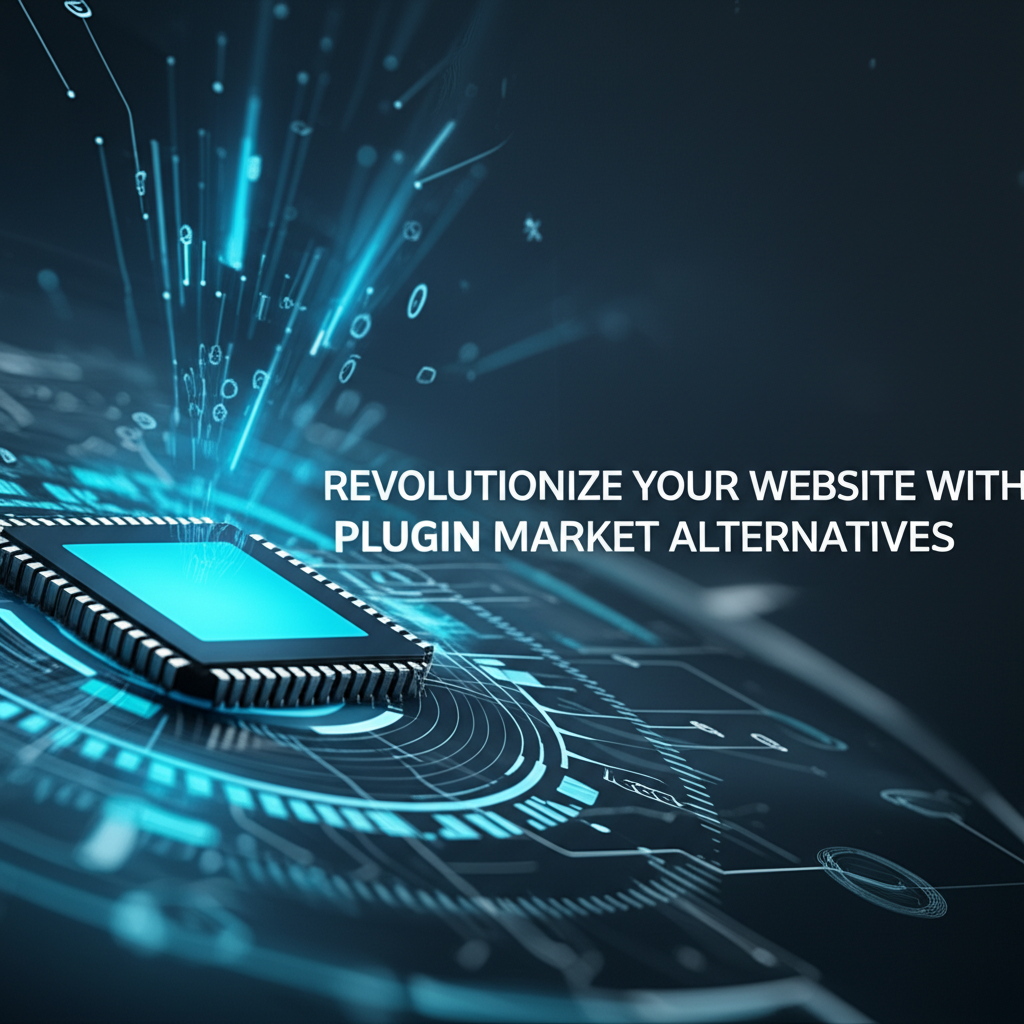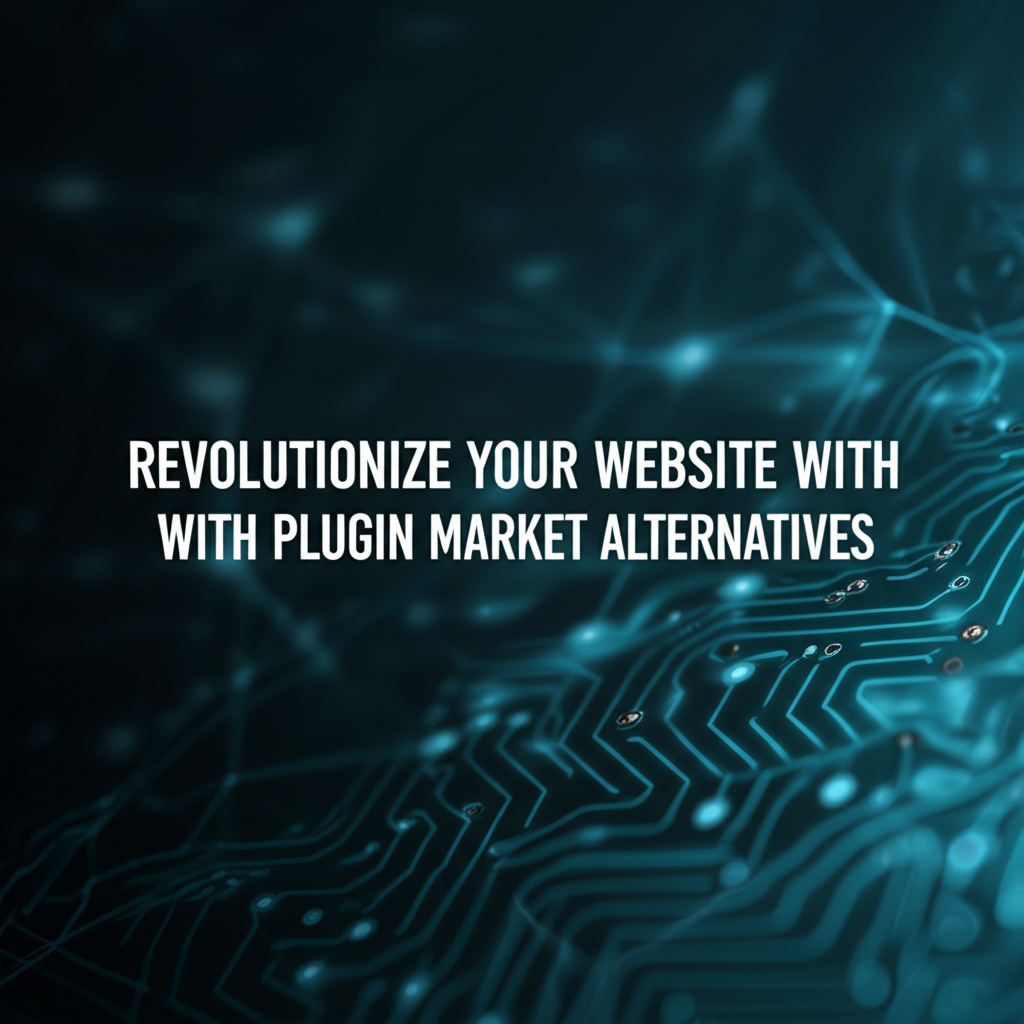Revolutionize Your Website with Plugin Market Alternatives

Build AI Agents With Incredible MCP
Introduction
In the rapidly evolving digital landscape, websites are the digital face of businesses and organizations. They serve as a platform for communication, commerce, and engagement. Plugins, once a cornerstone of website functionality, have become a bottleneck for developers seeking flexibility and scalability. This article delves into the world of Model Context Protocol (MCP) and API integration platforms, offering a fresh perspective on how to revolutionize your website with plugin market alternatives. We will explore the benefits, challenges, and best practices for leveraging these innovative solutions.
The Rise of MCP: A New Era for Plugin Integration
Understanding MCP
MCP, or Model Context Protocol, is a revolutionary approach to integrating plugins and extensions into websites. Unlike traditional plugin marketplaces, MCP allows for a seamless and efficient connection between AI Agents and a vast array of real-world data sources and tools. This protocol is designed to streamline the process of adding functionality to a website, reducing the time and complexity involved in manual integration.
Benefits of MCP
- Faster Performance: MCP enables rapid integration, significantly reducing the time it takes to add new features to a website.
- Cost-Effective: By automating the integration process, MCP can lead to lower development costs.
- Superior User Experience: With minimal configuration, MCP ensures a seamless and intuitive user experience.
Exploring API Integration Platforms
What is an API Integration Platform?
An API integration platform is a software tool that allows developers to connect different applications and services. These platforms act as a bridge, facilitating the exchange of data and functionality between various systems. For website developers, API integration platforms offer a powerful alternative to traditional plugin marketplaces.
Key Features of API Integration Platforms
- Extensive Library of APIs: API integration platforms provide access to a wide range of APIs, covering everything from social media to payment processing.
- Simplified Integration Process: These platforms offer tools and templates to simplify the integration process, even for developers without extensive experience.
- Scalability: API integration platforms can handle large volumes of data and users, making them suitable for websites of all sizes.
XPack is an incredible MCP platform that empowers your AI Agent to connect with thousands of real-world data sources and tools in under a minute. Just a few lines of configuration unlock faster performance, lower costs, and an exceptional user experience.Try XPack now! 👇👇👇
Case Studies: Successful Implementations of MCP and API Integration
Case Study 1: E-commerce Giant
An e-commerce giant implemented MCP to integrate a new customer review system. The process was completed in less than a week, compared to the months it would have taken using traditional plugins. The new system improved customer engagement and increased sales.
Case Study 2: Content Management System (CMS)
A popular CMS provider adopted an API integration platform to offer their users a wider range of third-party plugins. The platform’s extensive library of APIs allowed the CMS to integrate new features without compromising performance or user experience.
Overcoming Challenges in MCP and API Integration
Challenge 1: Security Concerns
Security is a major concern when integrating plugins and APIs. To mitigate this risk, developers should:
- Use secure connections (HTTPS)
- Regularly update APIs and plugins
- Implement access controls
Challenge 2: Compatibility Issues
Compatibility issues can arise when integrating different APIs and plugins. To address this:
- Conduct thorough testing before deployment
- Choose APIs and plugins from reputable sources
- Stay informed about updates and changes
Best Practices for Leveraging MCP and API Integration
1. Plan Your Integration Strategy
Before integrating MCP or an API, define your goals and requirements. This will help you choose the right tools and approach.
2. Choose the Right Tools
Select APIs and plugins that align with your goals and requirements. Consider factors such as performance, security, and ease of use.
3. Stay Informed
Keep up with the latest developments in MCP and API integration. This will help you stay ahead of the curve and leverage new features and tools.
Conclusion
The world of website development is evolving, and MCP and API integration platforms are at the forefront of this transformation. By leveraging these innovative solutions, developers can create more powerful, flexible, and user-friendly websites. As the digital landscape continues to change, embracing these alternatives will be key to staying competitive and meeting the needs of your audience.
FAQ
Q1: What is the Model Context Protocol (MCP)?
A1: MCP is a protocol designed to streamline the process of integrating plugins and extensions into websites. It enables rapid and efficient connections between AI Agents and a wide array of real-world data sources and tools.
Q2: How does MCP compare to traditional plugin marketplaces?
A2: MCP offers several advantages over traditional plugin marketplaces, including faster performance, lower costs, and a superior user experience. It also simplifies the integration process, making it more accessible to developers of all skill levels.
Q3: What are some of the key features of API integration platforms?
A3: Key features of API integration platforms include an extensive library of APIs, simplified integration processes, and scalability. These platforms make it easier to connect different applications and services, enabling developers to create more powerful and flexible websites.
Q4: How can I ensure the security of my website when integrating MCP or an API?
A4: To ensure the security of your website, use secure connections (HTTPS), regularly update APIs and plugins, and implement access controls. Conduct thorough testing before deployment and stay informed about updates and changes.
Q5: What are some best practices for leveraging MCP and API integration?
A5: Best practices for leveraging MCP and API integration include planning your integration strategy, choosing the right tools, and staying informed about the latest developments in the field. These practices will help you create more powerful, flexible, and user-friendly websites.
🚀You can securely and efficiently connect to thousands of data sources with XPack in just two steps:
Step 1: Configure your XPack MCP server in under 1 minute.
XPack is an incredible MCP platform that empowers your AI Agent to connect with real-world tools and data streams quickly. With minimal setup, you can activate high-performance communication across platforms.
Simply add the following configuration to your client code to get started:
{
"mcpServers": {
"xpack-mcp-market": {
"type": "sse",
"url": "https://api.xpack.ai/v1/mcp?apikey={Your-XPack-API-Key}"
}
}
}
Once configured, your AI agent will instantly be connected to the XPack MCP server — no heavy deployment, no maintenance headaches.

Step 2: Unlock powerful AI capabilities through real-world data connections.
Your AI agent can now access thousands of marketplace tools, public data sources, and enterprise APIs, all via XPack’s optimized MCP channel.

